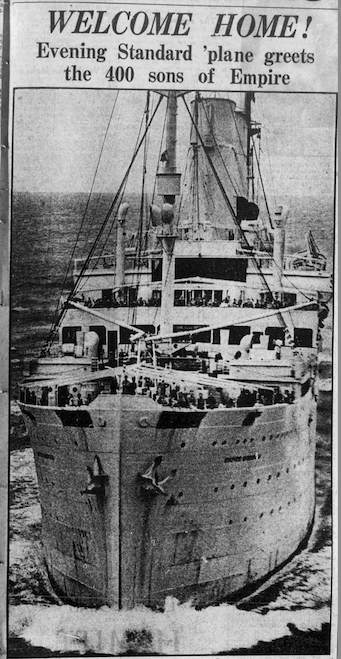By Jenny Ashcraft
It’s been 75 years since the HMT Empire Windrush, a former troop carrier turned migrant ship, arrived at Tilbury Docks near London on June 21, 1948. More than 800 passengers and several stowaways disembarked the following day, on June 22nd. The journey for many of these migrants began in Jamaica. They were West Indian Commonwealth migrants headed to the United Kingdom searching for jobs and a better life. From 1948-1971, some 500,000 people born in the British Empire, particularly Caribbean countries, arrived in the UK. They became known as the Windrush generation.

In 1948, the British Nationality Act opened the way for migration to the UK for holders of British passports in Commonwealth countries. It was an era of post-war rebuilding and labor shortages. The migrants, many skilled and anxious for work, provided cheap labor. Some of the migrants had served in the British military during the war. Having previously lived in the UK, they were anxious to return. Others were looking for jobs and saw the UK as a land of opportunity. They did not need, nor were they given, any documents upon arrival.

They boarded ships like the Windrush, the first large immigrant transport to bring people from the Caribbean to the UK. The Windrush has been called the Mayflower of post-war Black settlement in Britain. As the Windrush approached the Straits of Dover in 1948, the Evening Standard sent a plane to capture photos of the new arrivals. The paper’s headline read, “Welcome Home!” For many, however, the welcome was short-lived. Even though the workers filled vital jobs, they often encountered prejudice and bias. By the 1960s, suspicion and racism replaced the hospitality they initially experienced.
In 1971, the Immigration Act gave members of the Windrush generation, and other Commonwealth citizens living in the UK, the permanent right to live, work, and stay in the UK. However, they were not issued paperwork to support this status.
In 2018, the Windrush scandal bubbled to the surface when news emerged that hundreds of people from the Windrush generation, and sometimes their descendants, had been wrongfully detained, denied legal rights, and threatened with deportation. The Home Office of the British government did not have copies of the migrants’ paperwork granting citizenship, and their landing cards were destroyed in 2010. Attempts to receive medical care or other services were denied. The missing cards were essential to their claims of citizenship. Newspaper editorials published pleas to the government to stop deporting those who had contributed so much to British society.
Following the public outcry, the British government vowed to compensate members of the Windrush generation impacted by the scandal. Those efforts have been criticized for taking far too long. In 2018, supporters of the Windrush generation proposed to designate an annual day to celebrate the Windrush’s arrival. The proposal was adopted, and the UK celebrated the first annual Windrush Day on June 22, 2019. The fallout over the Windrush scandal continues. In January of this year, those who have campaigned for Windrush victims’ rights criticized the government’s decision to drop crucial reform commitments, and Windrush victims continue to struggle for benefits.
Source: Newspapers.com